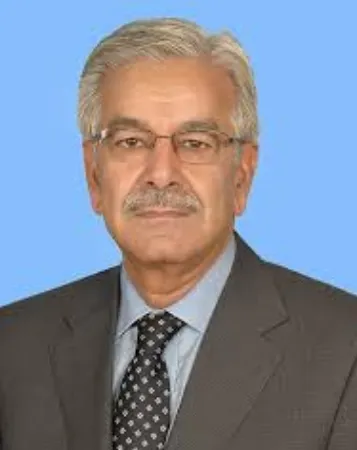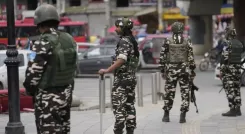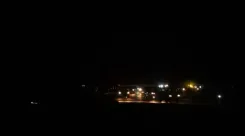Are Pakistan's Claims on Indian Drone Strikes a Sign of Duplicity?

Synopsis
The ongoing tensions between India and Pakistan have led to a series of contradictory claims regarding drone strikes. This article explores the situation, highlighting Pakistan's attempts to project strength while revealing its own inconsistencies.
Key Takeaways
- Conflicting claims from Pakistan highlight a lack of consensus among officials.
- The use of social media as a source of evidence raises questions about credibility.
- Pakistan's attempts to project strength may be undermined by duplicity.
- International scrutiny is likely to increase as the situation develops.
- Ongoing tensions could have long-term implications for regional security.
New Delhi, May 9 (NationPress) Feeling the pressure from Indian military actions targeting terrorist bases within its borders, the government of Pakistan and its military have ramped up efforts to maintain their image. This has included the deployment of drones and UAVs into Indian airspace, alongside a vigorous propaganda campaign aimed at disseminating misleading narratives suggesting they hold an advantage over Indian forces in this military confrontation.
In an attempt to present themselves as the dominant force, Pakistan is merely revealing its own duplicity. The conflicting statements from the Pakistan Army and Defence Minister Khwaja Muhammed Asif regarding the Indian drone strikes have not gone unnoticed, turning them into a subject of ridicule among netizens.
DG ISPR Lt Gen Ahmed Sharif asserted that the Pakistan Army successfully shot down at least 12 loitering munitions launched by India.
In contrast, the Defence Minister was recorded stating in a video that they refrained from intercepting the Indian drones to prevent exposing their military assets' strategic locations.
On May 8, the spokesperson for the Pakistan Army, Lt. Gen. Ahmed Sharif Chaudhry, claimed that Indian drones targeted nine distinct locations within Pakistan. He maintained that Pakistani forces had brought down 12 Harop drones, asserting that they caused minimal damage. He also mentioned possessing images of the debris from the drones.
On May 9, the Pakistani Defence Minister allegedly claimed that India employed stealth technology to penetrate Pakistani airspace and that Pakistan chose not to intercept them intentionally.
A viral video on social media depicts him saying: “We didn’t intercept Indian drones because we didn’t want to reveal our locations.”
Just a day prior, Khwaja Asif found himself in an awkward position when a US journalist questioned his claims about Pakistan shooting down Indian jets.
When pressed for evidence to support these assertions, he referred to social media posts.
“You’re the Defence Minister, sir. The purpose of speaking with you today is not to discuss social media content,” the journalist retorted.
This video also gained traction online, leading many to mock him.





